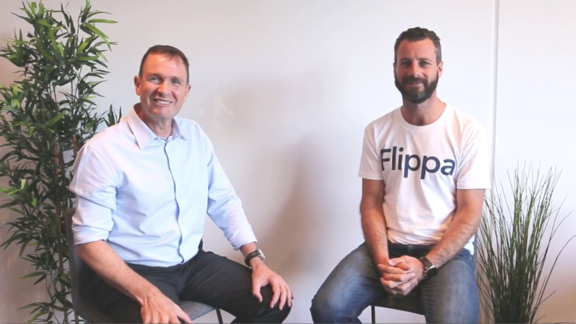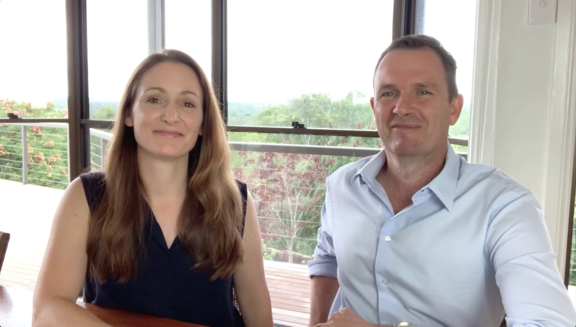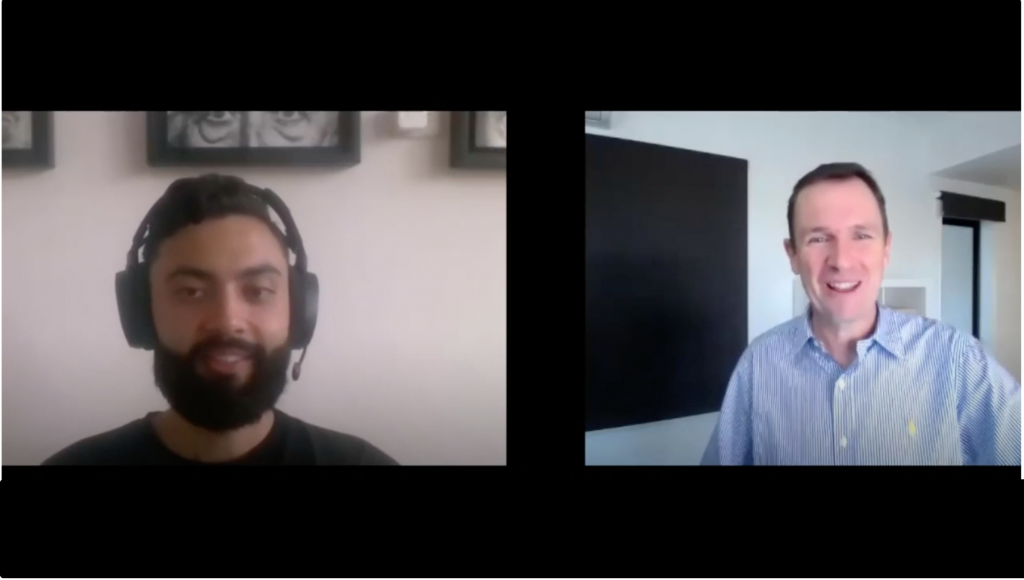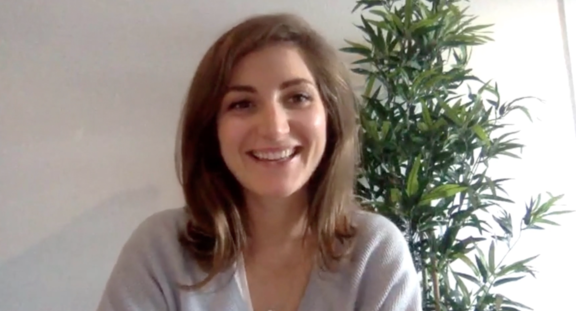Recently, Liz Raad was presenting at Pause Fest Digital Business Conference in Melbourne with Blake Hutchison, who is the new CEO of Flippa. Since Blake started five months ago, you have probably noticed some changes on the Flippa platform.
So we took some time out with Blake to chat to him about the changes they have made, and are going to make in the future. This is actually quite exciting, because it adds a level of security for both buyers and sellers when it comes to selling websites.
Flippa is now a website buying and selling marketplace that ensures all its listings are real businesses, sold by real people. As buyers, we now have a lot more security in our purchases, and better-quality websites delivered to market. Let’s find out more, as Matt runs through these changes with Blake.
Matt: Hi everyone. It’s Matt Raad here and I’m really excited about having Blake Hutchison with me, the new CEO of Flippa. The reason I wanted to do this interview, is because Blake’s just been presenting at Pause Fest in Melbourne with Liz, and they were talking about some of the new changes that’s been implemented at Flippa.
Blake: Yes.
Matt: And while I was sitting there listening, I was thinking to myself, “It is really important for our audience members to learn this”. Because in the past we’ve always taught – when people come onto the Flippa platform, it’s a great way to learn how to buy websites, and you can start out buying website for under $200.
Now, some of you may have noticed there’s been some big changes. So, Blake you’ve made some massive changes in just four or five months being at Flippa?
Blake: Yes, that’s right, nearly five months. I think the important thing, is that Flippa is split – by assets and businesses. So, what we want people to understand is that there is a big difference between something which is generating steady revenues (and is likely profitable) versus something that is a starter site (which is unlikely to have significant amounts of traction). That is really the simplest way to define it.
What we’ve done is said, “There is a difference.” Therefore, to play the game on Flippa we want people to decide – are they are selling an asset or a business? This helps buyers understand whether they are buying an asset or a business. It’s not to say that there won’t be a great deal of less-expensive assets to buy on the platform. But it is to say that Flippa has recognized there are a range of buyers at the high-value which expect to see different levels of detail on that listing when they go through the due diligence phase. When I joined, it was abundantly clear that where Flippa had moved to, was into this high-value space.
Matt: Which is a good thing?
Blake: Which is a good thing. And so, what we want to do for the entire marketplace at large, is build a really strong trust layer. And this trust layer comes down to a few key things.
Firstly, we’ve raised prices at the low end. And what that means is that a business or asset which is just starting out, and not hugely expensive – then by nature of our price increase to list an asset from $9 to $25; now you’re unlikely to see those super-cheap assets. It’s just the barrier to entry for that particular business or asset owner is now a little bit higher.
On the flip side, what we’ve now seen is that the quality of businesses that are listing on Flippa is of a slightly higher grade. There are a few reasons for that. By nature of a business being more successful, it typically is of a slightly higher quality.
And the other thing is that there is a history of some people listing things on Flippa that shouldn’t really have been listed in the first place.
Matt: Because it was so cheap. A low barrier to entry to list them.
Blake: So cheap or even, frankly, not necessarily legitimate. And so, what Flippa has done is made it a little bit harder for those illegitimate business sellers or owners to get started in the first place. Therefore, making it safer for all those buyers around the world.
Matt: So, you’re tightening up on verifications, as well? Buyers and sellers, that’s the other change, isn’t it?
Blake: Yes, thank you for mentioning that. I think that trust comes with not only getting the right things on the platform, but also verifying who these individuals are.
Matt: Perfect.
Blake: And that happens on both sides of the marketplace. So now, and just for everyone’s information, when a seller goes to sell something on Flippa, they must go through identity verification.
Our identity verification is powered by Netverify’s Jumio product. Now that’s probably a foreign term to everyone, but it’s essentially the same technology that Airbnb and Uber use to ensure that drivers, riders, hosts and travellers are verified. So Flippa wants to be seen as a world-class platform which is a trusted place to not only buy, but also sell.
So, that then takes us to the buyer’s side. Buyers looking at businesses will have to go through identity verification, because we’re taking sellers through that same process. It’s an acceptable thing to ask buyers to do the same thing as well. What that means is it’s no longer about anonymized profiles. It’s about knowing who you’re dealing with.
As we would expect – when you and I sit here today, “you are Matt”.
Matt: That’s right.
Blake: “I am Blake”.
Matt: Yes.
Blake: We want people on Flippa to have that same level of transparency.
Matt: Perfect.
Blake: And that creates an environment where we all feel like we can be honest and it’s no longer about anonymized data, it’s about information which helps us to make an informed choice.
Matt: And that helps our clients. Remember, one of the things we teach in our due diligence process (one of the key steps) is getting to know the seller. Do you trust and like them? Because people buy off people at the end of the day, even if we’re doing things online and virtual.
So, this is fantastic for (from our clients’ point of view) being able to buy these websites. It just helps so much in that aspect of the due diligence process. Knowing that we’re all verified buyers and sellers. But like you said, obviously from Flippa’s point of view, you’re building this trusted marketplace.
Blake: Yeah it is really cool and look, one of the key features that we’re talking about at the moment is, we find that most buyers and sellers get the most out of the buy and sale process when they get on a video call.
Matt: Absolutely, yes.
Blake: And so, we’re going to be building that feature in. And again, it’s a cool, nifty feature. But the aspect of it which is so important is you tend to trust someone a little more when you can see them.
Blake: So, I would encourage all of your buyers out there to always insist on a video call and get to know who they’re buying from.
Matt: Yeah, in the good old days we used to say, “Get on Skype.” But soon we’ll be able to do it on the Flippa platform itself.
So, I’m sure there’s going to be some more big changes coming at Flippa which we might address in some other interviews like this. But for the moment that was the main one that I wanted to bring across, just so that people understand why things are changing out there and why there’s the difference now in buying sites under $1,000. I think, long-term is going to be a really good thing for all users.
Blake: Yes.
Matt: And for all of us who are buying these smaller sites when you’re learning. So, fantastic Blake, thank you very much.
Blake: Yeah, thanks everyone. Appreciate the opportunity
Matt: Thank you.
We would love to hear your feedback below. Have you started to notice these changes with Flippa? How are you finding this new level of transparency? Has this helped your confidence when searching and purchasing your websites?




